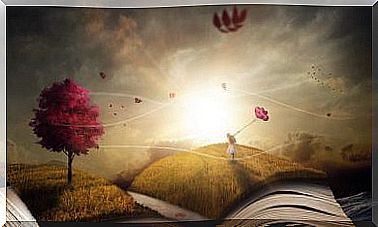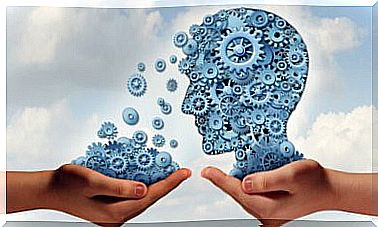Jung’s Psychology Of Alchemy
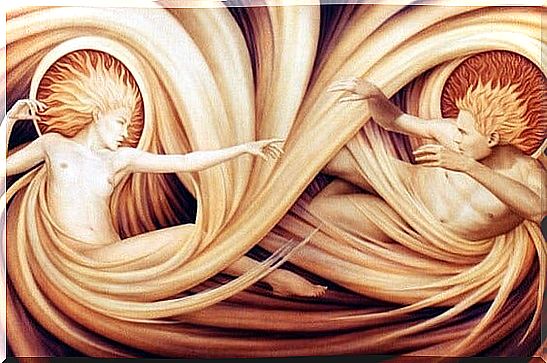
The psychology of alchemy enunciated by Carl Jung left us a legacy that is as fascinating as it is controversial. For the famous Swiss psychiatrist one of the purposes of the human being was his transformation into a free and individual being. However, this achievement went through decoding each symbol contained in our unconscious.
The subject, by itself, is not easy to assimilate at first. However, many of the theories and approaches inherited from Carl Jung today pose small theoretical challenges in which it is always interesting to dive. It allows us to open perspectives, make approaches more flexible, and enrich ourselves a little more with the legacy of one of the most controversial and interesting personalities in the history of psychology.
Thus, whoever opens Jung’s book Psychology and Alchemy published in 1944 for the first time, the first thing they will experience is confusion. The formulations enunciated in each one of the pages of this work are very daring; However, if there is something that defined Carl Jung from the beginning, it was his mastery to bring us closer to that psychic, diffuse and mysterious life that transcends the psyche itself.
The psychology of alchemy is, above all, a proposal for transformation. There where the most decisive factor is our intentionality and creativity, that which will allow us to open our particular “alchemical routes”.
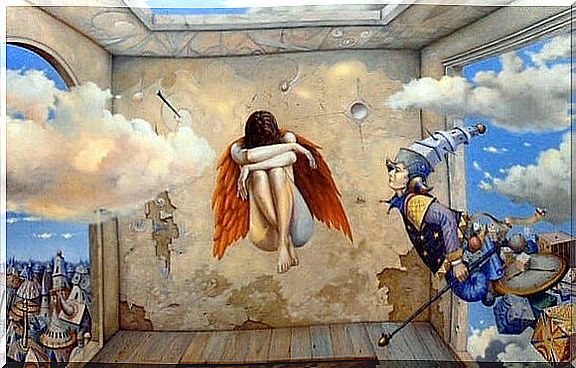
What is the psychology of alchemy?
Perhaps we have the idea that alchemy is a proto-scientific practice, halfway between the mystical, the spiritual and the philosophical that has its roots in Hermes Trimegistus, a Greco-Egyptian deity. Perhaps we also have in mind those purposes that alchemy apparently sought in the past: eternal youth or the power to transform any material into gold.
Now, when we refer to Carl Jung’s psychology of alchemy, it must be said that it has nothing in common with these purposes. In this case, what there is is a sense of elevation, of personal evolution. In this way, if we delve a little into his book Psychology and Alchemy , we will discover his interest in reviving the concept of alchemy in a passionate attempt to renew our philosophical and psychological culture.
For Jung, self- knowledge stems from the ability to understand not only the psyche, but also each of the manifestations of the unconscious. Only by looking at dreams, for example, could we achieve a more holistic vision of ourselves, a richer and deeper fabric with which to shape a better version of ourselves.
Isaac Newton, an example of the psychology of alchemy
Isaac Newton, this mathematical genius and eminent scientist did more than develop the differential calculus, discover the spectral properties of light, enunciate the theory of universal gravitation or formulate the first calculations of the attraction of the Moon on the Earth.
Thanks to him we entered the so-called Era of Reason , there where everything had to have adequate experimental and scientific support. Now, something that could be discovered in Newton’s notes and private diaries is that he was a great expert in alchemy. What’s more, as several articles reveal, this was his true passion.
Jung said that alchemy was also an art form, and as such it was still a science, one where all knowledge can become much more luminous, elevated. Therefore, Newton was able to open himself to another type of knowledge, where spirituality, astronomy, the symbolic and the mystical could help him to shape an evolved psyche.
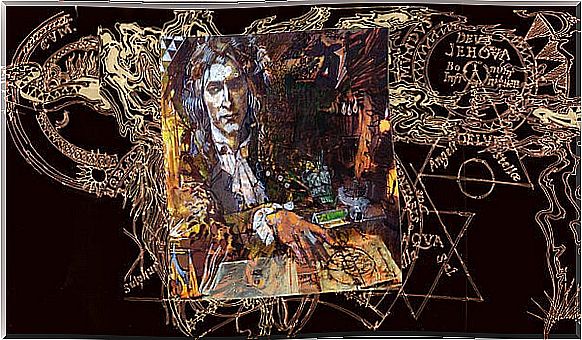
In fact, to achieve this, it would be enough just to understand some ideas according to Carl Jung:
- Alchemy is a personal journey of transformation. It is an instinctive drive for growth.
- People with an inflexible mind and a type of consciousness focused towards the objective, the material and the observable will have a limited life.
- In order to promote a broader and higher consciousness like that of Isaac Newton, we should develop, according to Carl Jung, the following four alchemical elements: intuition (fire), thought (air), feeling (water) and sensation (earth).
- Likewise, the psychology of alchemy also starts from many of our unresolved psychic elements. We must first of all delve into that alchemical darkness where our shadows are to bring them to light. Any transformation requires some effort and a high sense of creativity.
There are two kinds of alchemy. One that would strive to know the cosmos as a whole and recreate it. It is in a sense, the forerunner of modern natural science. Something that Isaac Newton himself achieved by far. The other alchemy would focus on the possibility of a transformation that leads us to be ourselves.
Psychology of alchemy to understand the human soul
Psychology and Alchemy is volume number 12 of the complete works of Carl Jung. To understand this work, we are going to describe the context: we are at the end of World War II and in the midst of a crisis of values. Furthermore, Jung experienced a real personal fracture related to trust in the human being.
It seeks to reach the deepest essence of our being, even that soul that could somehow be rescued through an alchemical process. This journey, almost like Dante’s hell, had to follow the following initiatory journey, a journey that started from the deepest circles, emerging little by little to enlightenment:
- Know the raw material of the human being. For this we must drop our social masks.
- Work the “nigredo”, that dark mass where our shadows lie, those dark parts that we do not want to see of ourselves.
- Understand the union of opposites in our personality (our evil and our ability to do good)
- Differentiate our feminine soul from the masculine one, as well as those archetypes that underlie our being (the hero, the father, the wise man …)
- Decipher the meaning of our dreams.
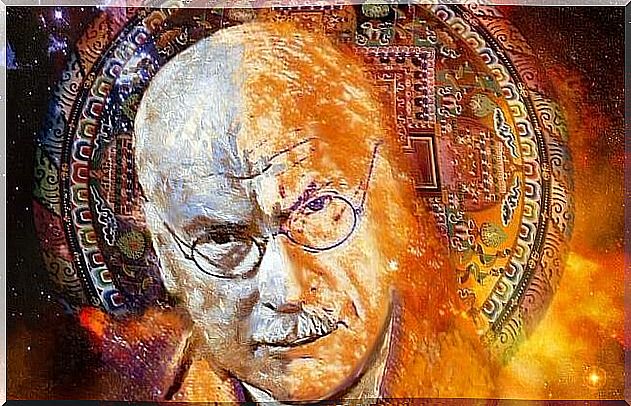
To conclude, the psychology of alchemy enunciated by Jung is a direct invitation to go beyond the most orthodox and empirical science. It was one more of his attempts to make us cross the threshold of the most ordinary knowledge to reach the extraordinary, to that symbolic and spiritual essence contained in our own psyche.
To this day, in the garden of what was his country house in Bollingen, there is still a large cube-shaped stone where you can see a series of alchemical symbols that he himself wrote. The same ones that were revealed to him in a dream and that came to mean the following: ” This is a sign for you, so that you remember that you are unity and that you yourself are everything in this world.”

